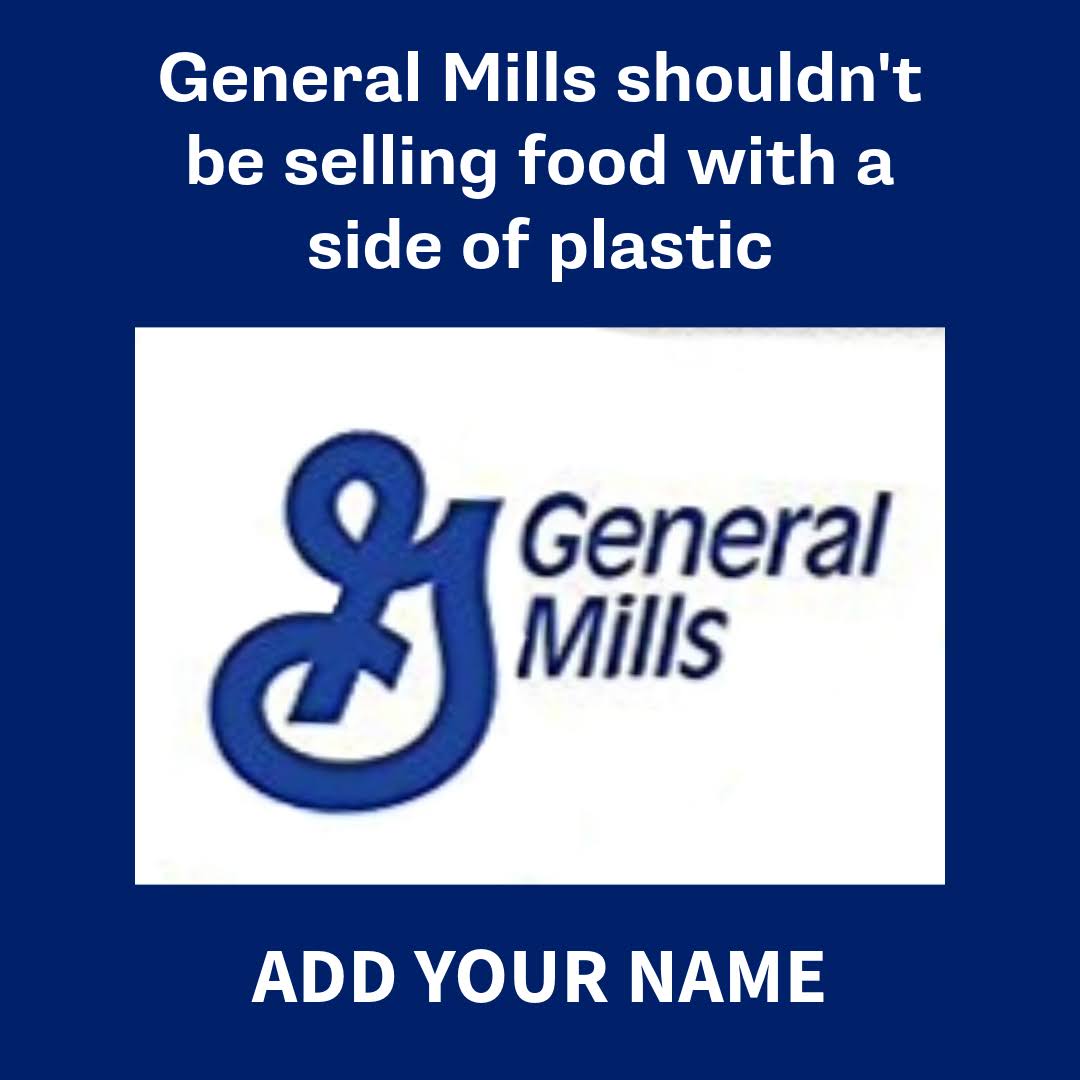
 |
John,
There's lots of places where you'll find the iconic cursive "G" of the General Mills logo.
Check pretty much any aisle at your grocery store, and you'll find General Mills products, everything from cereal and brownie mix to frozen dinners. But what happens once the package has been unwrapped, the food all eaten?
Last year, 13% of General Mills packaging was plastic -- and much of this plastic still in our environment today.1
Join us in urging General Mills to stop using so much plastic packaging.
General Mills has been around since the 1920s, several decades before plastic packaging became common.2,3 But today, the company behind popular food brands including Cheerios, Betty Crocker and Nature Valley wraps many of its products in plastic.4
General Mills was doing fine before plastic: It's time to get back to its roots.
The company has pledged to make all its packaging reusable or recyclable by 2030. While this is a good start, when only 5% of all plastics in the U.S. are actually recycled, General Mills must do more.5
Tell General Mills: Use less plastic.
The pollution from plastic waste is bad enough. But plastic food packaging can also threaten our health by exposing us to dangerous chemicals like plasticizers.
Plasticizers are a class of substances linked to hormone disruption, cancer and birth defects -- they are also often added to plastic food wrappers to make them more pliant.6
A 2024 study found many General Mills food products contained especially high concentrations of plasticizers.7
The company's use of plastic packaging is bad for our health and the health of the planet. Tell General Mills: It's time to get serious about plastic reduction.
General Mills food didn't always come with a side of plastic waste. Let's secure a future where we can again enjoy Cheerios free from plastic.
Thank you,
Faye Park
President
1. Maria Rachal, "General Mills projects plastics decreases as product portfolio changes," Packaging Drive, April 16, 2025.
2. "Our History," General Mills, last accessed April 30, 2025.
3. Paula Hook and Joe E. Heimlich, "A History of Packaging," The Ohio State University: College of Food, Agricultural, and Environmental Sciences, May 11, 2017.
4. Steve Blackledge and Matt Casale, "We're calling on General Mills to reduce its single-use plastic packaging," PIRG, October 6, 2022.
5. Steve Blackledge and Matt Casale, "We're calling on General Mills to reduce its single-use plastic packaging," PIRG, October 6, 2022.
6. Kate Gibson, "General Mills faces renewed calls to remove plastic chemicals from food," CBS News, May 31, 2024.
7. Kate Gibson, "General Mills faces renewed calls to remove plastic chemicals from food," CBS News, May 31, 2024.
Support U.S. PIRG. Contributions by people just like you make our advocacy possible. Your contribution supports a staff of organizers, attorneys, scientists and other professionals who monitor government and corporate decisions and advocate on the public's behalf.
Join us on Facebook | Follow us on Twitter
U.S. PIRG, Main Office: 1543 Wazee St., Suite 460, Denver, CO 80202, (303) 801-0582
Federal Advocacy Office: 600 Pennsylvania Ave. SE, 4th Fl., Washington, DC 20003, (202) 546-9707
Member Questions or Requests: 1-800-838-6554.

If you want us to stop sending you email then follow this link -- unsubscribe.